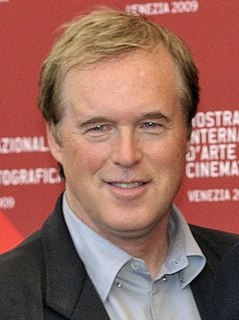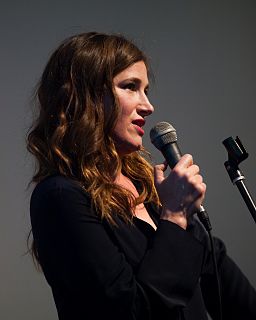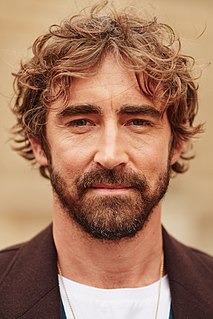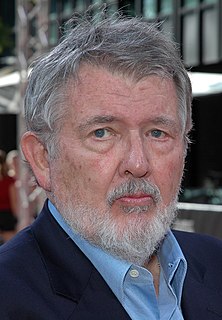A Quote by John C. Reilly
A lot of people that make films say, 'We need this kind of character. Who's done it before? Get them to do it again.' That is exactly what actors are pushing against. It's kind of a cliche to talk about being stereotyped in that way, but it happens.
Related Quotes
I think there's an initial shedding of the skin of a character when you've played them for so long, almost like a snake losing its skin. But when a job is done, I kind of walk away from it because I know that I need to prep for whatever else I'm going onto - I need to get back to being myself, which... Who knows exactly who that is, with all the talking voices in my head. You know, back to being a bit of a blank slate again. It becomes a necessity as an actor - at least for the way that I act.
I think we kind of changed how people did humans in CG animation after. If you look at films before 'Incredibles,' they tended to be photorealistic in a clunky and ugly way, with pores in their skin and too many eyelashes. It's kind of disturbing. And since, the designs have gotten a lot more playful in a lot of people's films, not just ours.
I think in terms of being a New Yorker, as my friends would say, I don't take a lot of mess. I have no tolerance for people who are not thinking deeply about things. I have no tolerance for the kind of small talk that people need to fill silence. And I have no tolerance for people not - just not being a part of the world and being in it and trying to change it.
See, the first thing about actors is, you're just trying to get a job; and you audition and audition and you finally get them. And you still consider yourself an auditioning actor. I auditioned for One Fine Day, I wasn't offered that. So you're still in that 'Hey, I'm just trying to get a job' thing. Then, you get to the point where, if you decide to do it, then they'll make the film. That's a different kind of responsibility, and it usually takes a couple of films to catch up. And then you have to actually pay attention to the kind of films that you're making.
I don't want to take shots at professional actors, because obviously the great ones are great. But I do think that given the kind of stories I've been telling in my films, it's hard for me to imagine how professional actors would have done better. And it's easy for me to imagine how they would have done worse. Because I think a lot of what an actor is trained to do and a lot of what an actor's instincts point toward is clarification, is always making it clear what's happening in the story, how the character fits into the scene, what the character wants.
I feel like a lot of the films I do, part of the reason I like doing them is I'm not 100 percent sure what it's going to be. It's exciting. I read an equal amount of very generic scripts, and you kind of know exactly what those are and that doesn't whet my appetite. I already know what it is or I already know what the character is. It's just a lot harder to get interested.
Conversations about films are always funny. I would say a majority of people want to talk about what were the more obvious successes; the big box office films. Other people wanting to be more sensitive to you want to talk about the ones that maybe didn't make a lot of money, but they think you might have a special feeling about. And then other people sometimes want to help you by suggesting that you should have done this or that in the movie, that that would have helped you a great deal in whatever capacity.
The first thing that happens is the cleansing of the former character. I don't think a lot of actors talk about it, but there is usually a process where you essentially purge yourself of the character played prior to the movie. Then you want to think about what the character represents, and you write down all of the elements about this character and then take the time to find some synchronicity and start breathing the character.
The thing I was up against in documentary films - was trying to get non-actors to convincingly play themselves in a way I'd come to know before the camera started rolling. And many non-actors can't do that convincingly, even if they just have to play themselves - they can't be naturalistic. And I would always want to recreate something I'd witnessed them do or say, and it just would be incredibly difficult because of the fact they weren't actors.



































